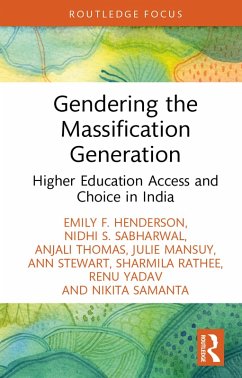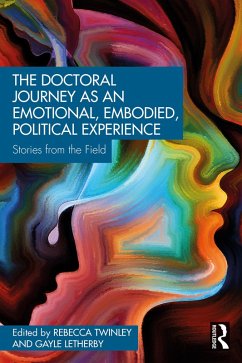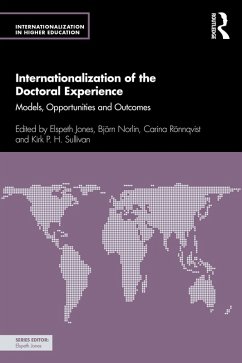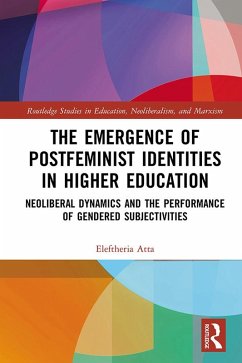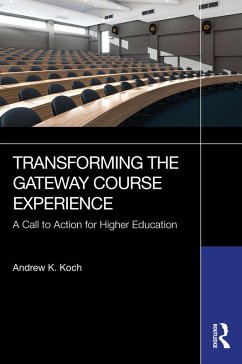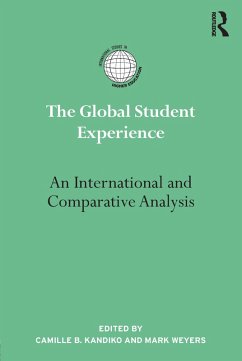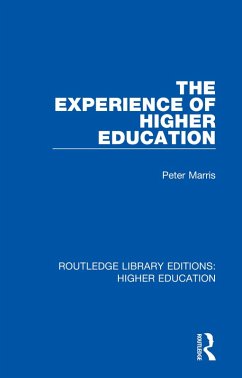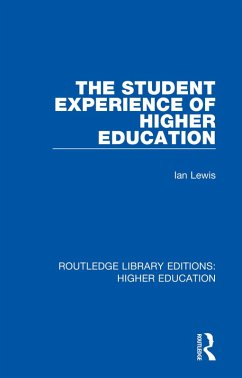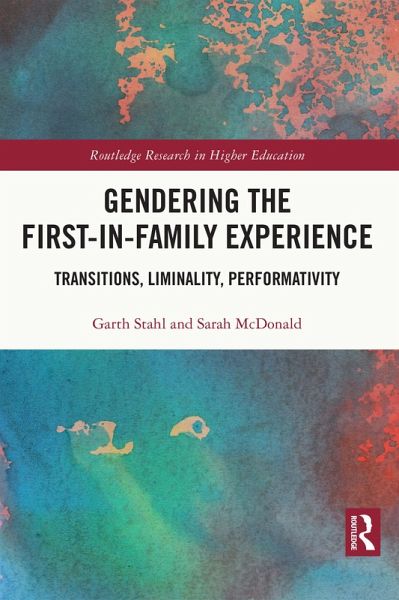
Gendering the First-in-Family Experience (eBook, PDF)
Transitions, Liminality, Performativity
Versandkostenfrei!
Sofort per Download lieferbar
39,95 €
inkl. MwSt.
Weitere Ausgaben:

PAYBACK Punkte
20 °P sammeln!
Despite efforts to widen participation, first-in-family students, as an equity group, remain severely under-represented in higher education internationally. This book explores and analyses the gendered and classed subjectivities of 48 Australian students in the First-in-Family Project serving as a fresh perspective to the study of youth in transition. Drawing on liminality to provide theoretical insight, the authors focus on how they engage in multiple overlapping and mutually informing transitions into and from higher education, the family, service work, and so forth. While studies of class d...
Despite efforts to widen participation, first-in-family students, as an equity group, remain severely under-represented in higher education internationally. This book explores and analyses the gendered and classed subjectivities of 48 Australian students in the First-in-Family Project serving as a fresh perspective to the study of youth in transition. Drawing on liminality to provide theoretical insight, the authors focus on how they engage in multiple overlapping and mutually informing transitions into and from higher education, the family, service work, and so forth. While studies of class disadvantage and widening participation in HE remains robust, there is considerably less work addressing the gendered experiences of first-in-family students.
Dieser Download kann aus rechtlichen Gründen nur mit Rechnungsadresse in A, B, BG, CY, CZ, D, DK, EW, E, FIN, F, GR, HR, H, IRL, I, LT, L, LR, M, NL, PL, P, R, S, SLO, SK ausgeliefert werden.




